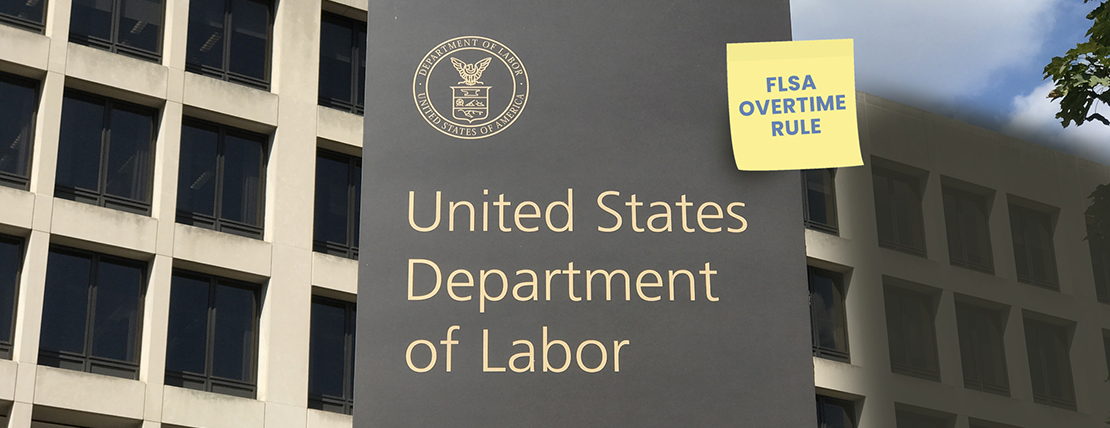- Overtime rule delayed. The Department of Labor announced that it has pushed its release of a proposed overtime salary threshold final rule date to August.
- Current overtime rule. The Biden administration wants to revise the previous administration’s rule, which raised the minimum salary level required for exemption to $35,568.
- Expect a significant hike. Due to a variety of factors, including inflation, legal analysts anticipate a new threshold to approach or even exceed the Obama administration’s proposal of $47,476.
Anyone waiting for the Department of Labor’s (DOL) new proposed threshold rules on overtime pay will -- once again -- need to wait a while longer. The proposed rules are important to employers because they are expected to modify the salary level at which many workers become exempt from the Fair Labor Standards Act’s minimum wage and overtime requirements, according to the DOL.
The proposed rule is now expected to be released in August, according to the spring regulatory agenda released by the DOL’s Wage and Hour Division. This marks the third time the proposed rule has been delayed. Such delays are not unusual because regulatory agendas typically represent only a DOL guesstimate of when rules will be issued, legal analysts have noted.
Additional delays may be ahead, according to Scott Witlin, a partner at Barnes & Thornburg, a national law firm. Witlin believes a realistic timeframe is that the threshold change will be issued within the next 12-18 months.
The delay is caused in part because the Senate has not yet confirmed Julie Su, President Biden’s nominee to replace Marty Walsh as Secretary of Labor. Also, Jessica Looman, Biden’s nominee to lead the Wage and Hour Division, has not yet been confirmed.
But, Witlin said, “this is important for one of President Biden’s main constituencies, and I would not expect that the administration will let it go unaddressed heading into the election.” He added that whether the rule gets done before the end of this year is a “tougher question.”
“I would say it is not impossible, but it is less certain because of the DOL leadership uncertainty,” he said. “An aggressive new regulatory scheme could make confirmation more difficult.”
A Potentially Inflated Threshold
Currently, the minimum salary level required for exemption is $35,568. That threshold went into effect Jan. 1, 2020, under a new DOL final rule issued by the Trump administration in September 2019.
The minimum annual salary required to satisfy the Highly Compensated Employee (HCE) exemption is $107,432.
With inflation running so high the past 18 months, Witlin said, it is conceivable that the new proposed rule would raise the salary basis threshold above $47,476 annually – an amount proposed during the Obama Administration but stopped by court challenges.
“Of course, one risk of doing that would be to further fuel inflation,” he said.
Witlin notes that the original Obama Administration’s proposed rule would deliver a significant increase in the Highly Compensated Employee exemption (22% at that time), and also continually raise the threshold annually so that it would only apply to a fixed percentage of salaried workers.
“That would result in either a smaller and smaller number of workers being covered under the Highly Compensated Employee exemption, or the exemption continuing to accelerate upwards by greater and greater amounts,” he said.
Editor’s Note: Additional Content
For more information and resources related to this article see the pages below, which offer quick access to all WorldatWork content on these topics:








